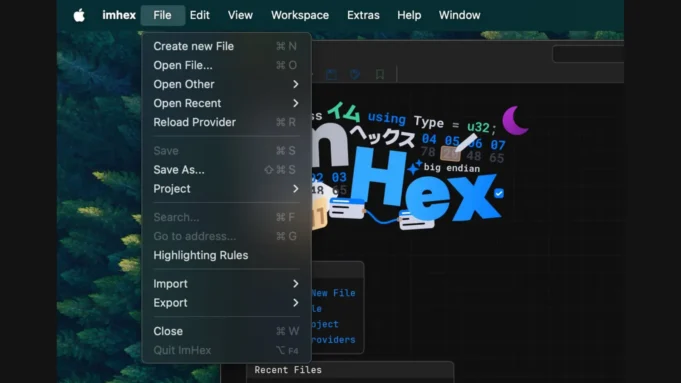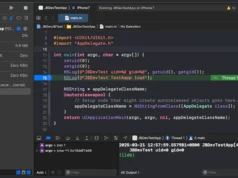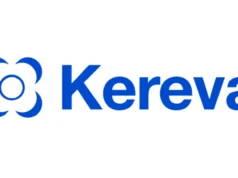The latest release of ImHex v1.37.0 introduces a host of exciting features and improvements, enhancing its usability and functionality for reverse engineers and programmers.
Massive UX Improvements
ImHex v1.37.0 brings significant user experience upgrades:
- HiDPI Scaling: Full HiDPI scaling is now supported across Windows, macOS, and Linux, ensuring crisp visuals on high-resolution displays.
- Native macOS Menu Bar: macOS users can now enjoy a native menu bar for better integration.
- Custom Fonts: Users can set separate fonts for the main UI, Hex Editor, and Pattern Editor, enhancing readability and customization.
- Revamped Frame Rate Limiting: The new frame rate limiter reduces lag and CPU usage, making the application smoother.
- Improved Aesthetics: Features like title bar gradients, accent colors, and a redesigned settings window elevate the visual appeal.
One of the standout additions is support for custom disassemblers:
- Users can define disassemblers for custom instruction sets using a simple JSON format.
- This flexibility is crucial for working with non-standard architectures or proprietary instruction sets.
MSVC Support
ImHex now supports compilation using Microsoft Visual C++ (MSVC) and ClangCL on Windows:
- While the main releases are still built with MinGW, this addition simplifies contributions to the project.
- Thanks to this update, developers using MSVC can seamlessly integrate ImHex into their workflows.
Other notable enhancements include:
- A new ARM64 AppImage release and WebAssembly support for self-hosting ImHexWeb.
- Command-line messaging support on macOS and Linux, allowing users to control open instances of ImHex programmatically.
- OpenGL post-processing shader support for custom visual effects.
- New UTF-16 and UTF-32 string and character types.
This release addresses numerous bugs, including crashes on Linux systems without XDG_SESSION_TYPE, AMD GPU resizing issues, and rendering glitches in the text editor. These fixes ensure a more stable experience.
With these updates, ImHex continues to solidify its position as a powerful tool for reverse engineering and binary analysis. Its open-source nature and active development make it an invaluable resource for developers worldwide.

















